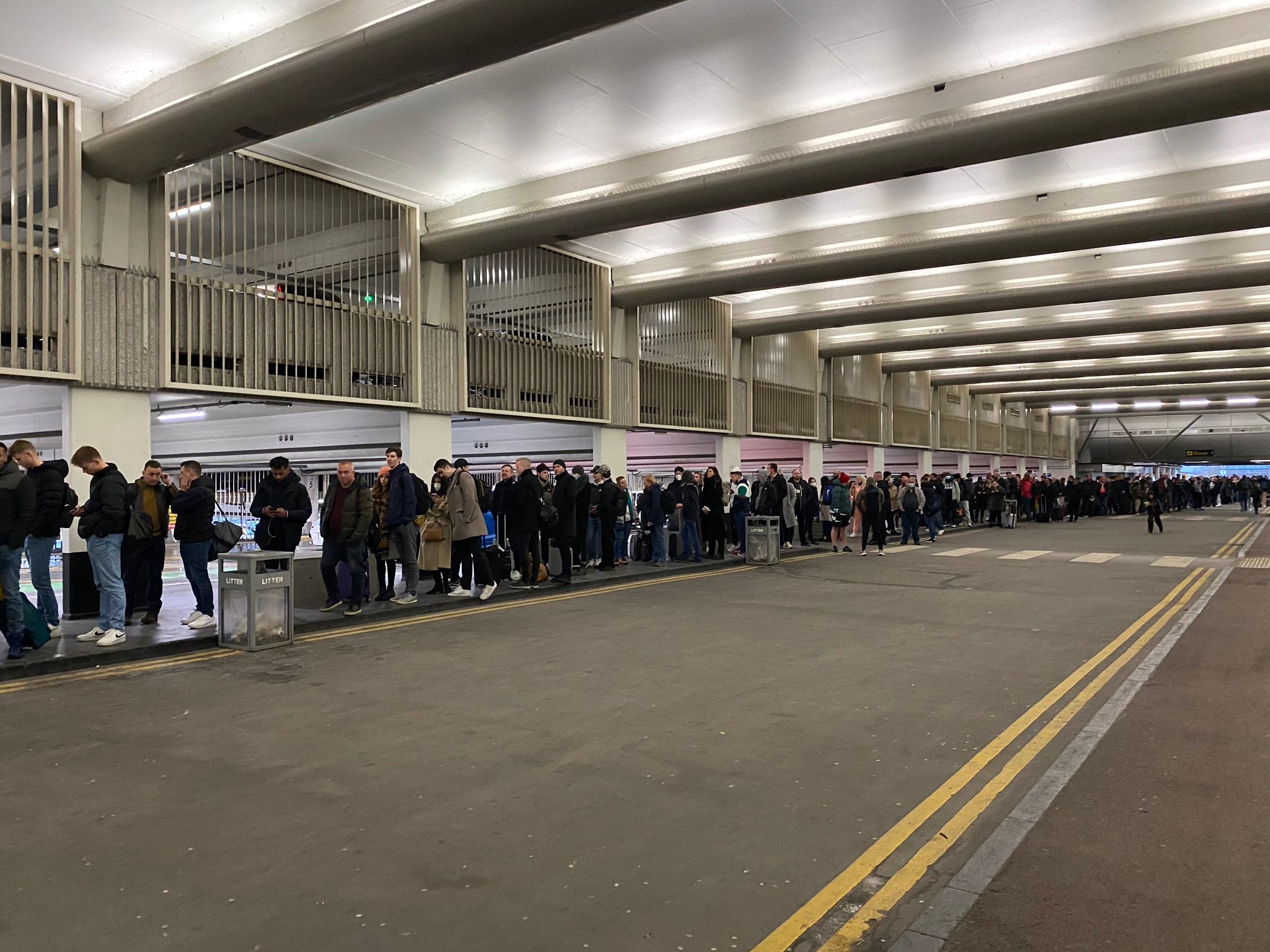Who’d run an airport?
Plane Talk: After weeks of travel chaos, the managing director at Manchester airport has stepped down writes Simon Calder


As an example of the term “thankless task”, I give you “pretty much any job at any airport”. For a more precise definition, try “airport boss”.
Karen Smart – managing director at Manchester airport – has stepped down. Her resignation comes after weeks of travel chaos at what is usually the UK’s third-busiest airport (after Heathrow and Gatwick).
About a month ago, as Covid restrictions eased and propensity to travel increased, passengers using Manchester started to report long queues at security – a complete contrast to my last journey from there, on 6 March 2020, when I was almost the only passenger.
Two years on, the search process has become so slow on occasions that people are either missing planes or finding them delayed, as pilots and cabin crew (plus passengers who got there six hours ahead of departures) waited for the missing payload.
The wrong kind of passengers, some airport insiders have complained: people who haven’t flown for two years seem to have forgotten the pesky 100ml liquids rule and are turning up with jumbo bottles of shampoo and suncream. Others neglect to consult the arrival rules for their destination until they reach the airport, adding to the slow-motion scrum at check-in.
Social media, as ever, is hungry for culpability – and Ms Smart has become the unfortunate fall girl. But the chaos in aviation over the past two years, with one incoherent set of travel restrictions after another, made travelling by turns either illegal or impossibly complicated.
The women and men who had powered the UK’s ascent to the world’s most successful aviation industry have been furloughed, made redundant or simply found more agreeable jobs that do not demand grossly anti-social hours in high-stress environments.
British Airways and easyJet currently testify to the de-staffing and de-skilling of aviation, with each making around 70 flight cancellations a day. But airlines are in a far stronger position than airports.
Carriers can move assets around to maximise their earning potential. Airports have an annoying habit of remaining immobile. They are at the dual mercy of the airlines and the ever-fickle travelling public.
Airlines love announcing new routes. But they are absolutely ruthless about moving out of airports when a better opportunity – or at least a way to lose money more slowly – presents itself. Just ask the bosses of beautiful Prestwick in southwest Scotland, which for a time was the nation’s low-cost getaway but now has but a handful of daily flights when Ryanair is in the right mood.
Or Southend, which until 2020 was on a trajectory to become a second Essex success story (after Stansted) by providing a simple, friendly alternative to the other London airports.
When aviation implodes, airlines retreat to their heartlands. Manchester fared better than most, but in March 2021 had lost 95 per cent of its passengers. (At least it performed better than its sister in Manchester Airports Group, East Midlands, which revealed all its users in that terrible month could fit into a double-decker bus.)
Going from 100 per cent to five per cent of customers and back to 80 or 90 per cent in the course of two years would be a challenge for any boss in any industry. I wish Karen Smart well in her next post, and trust the task will bring her some deserved thanks.
Join our commenting forum
Join thought-provoking conversations, follow other Independent readers and see their replies
Comments
Bookmark popover
Removed from bookmarks